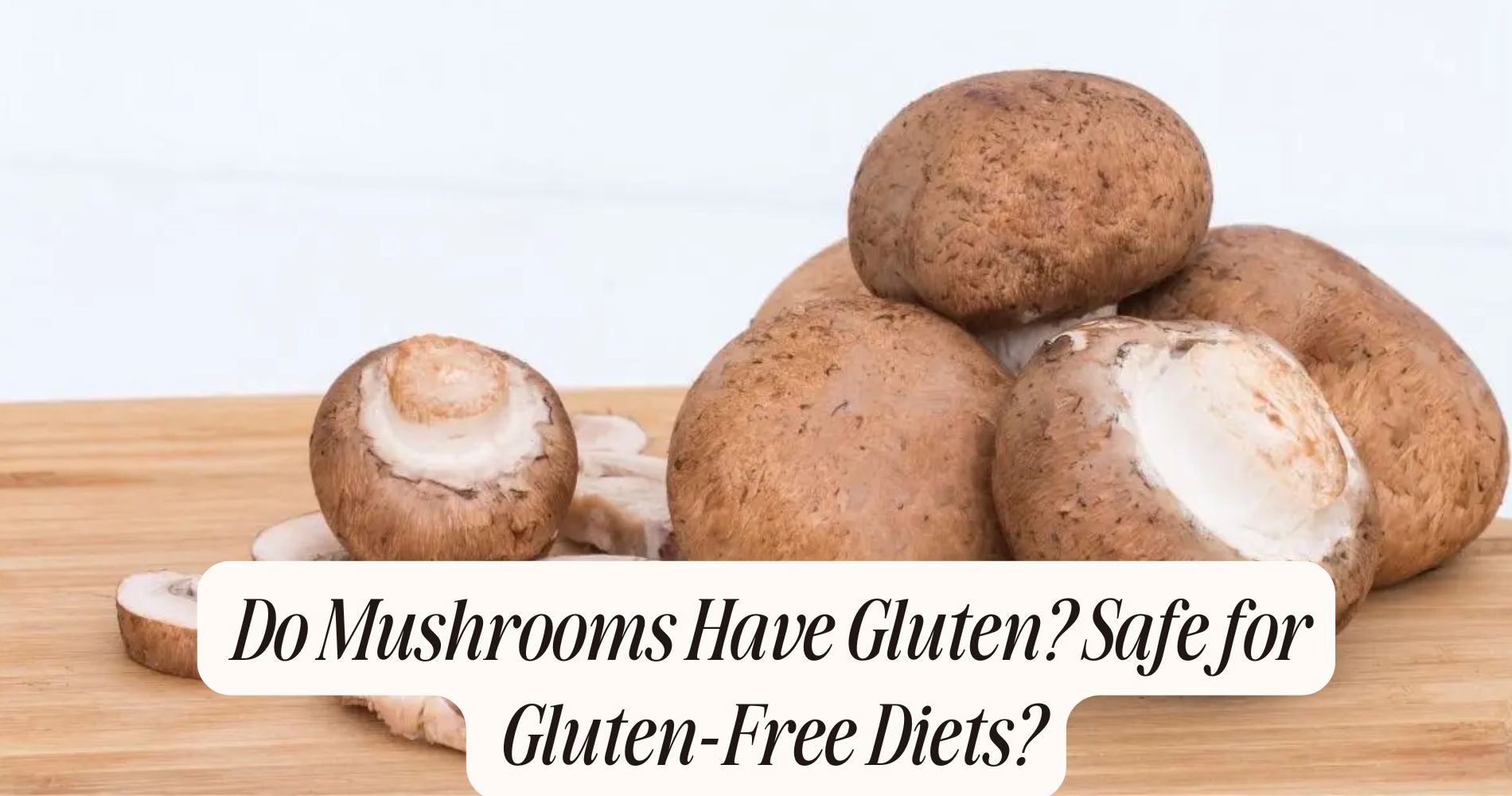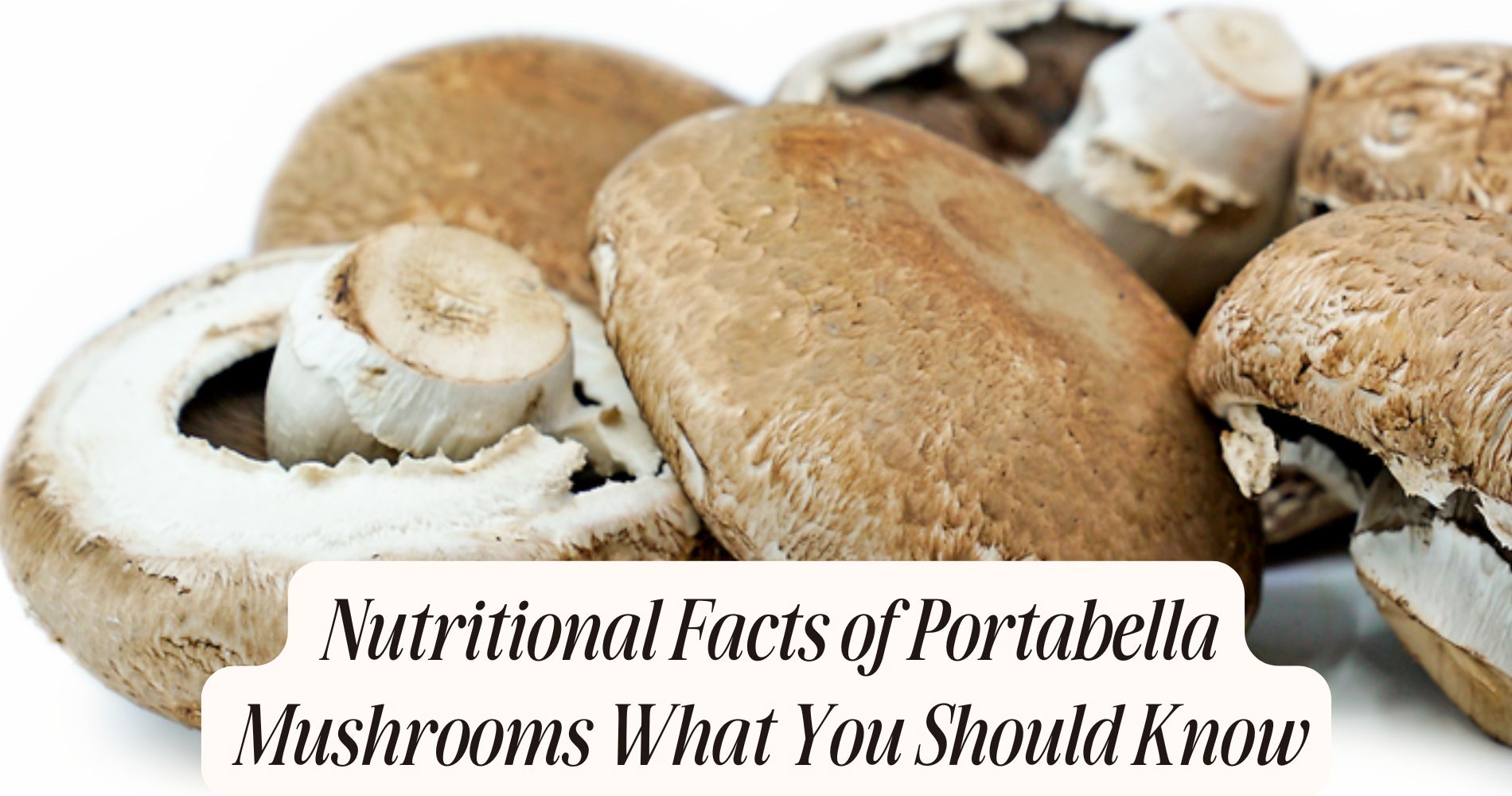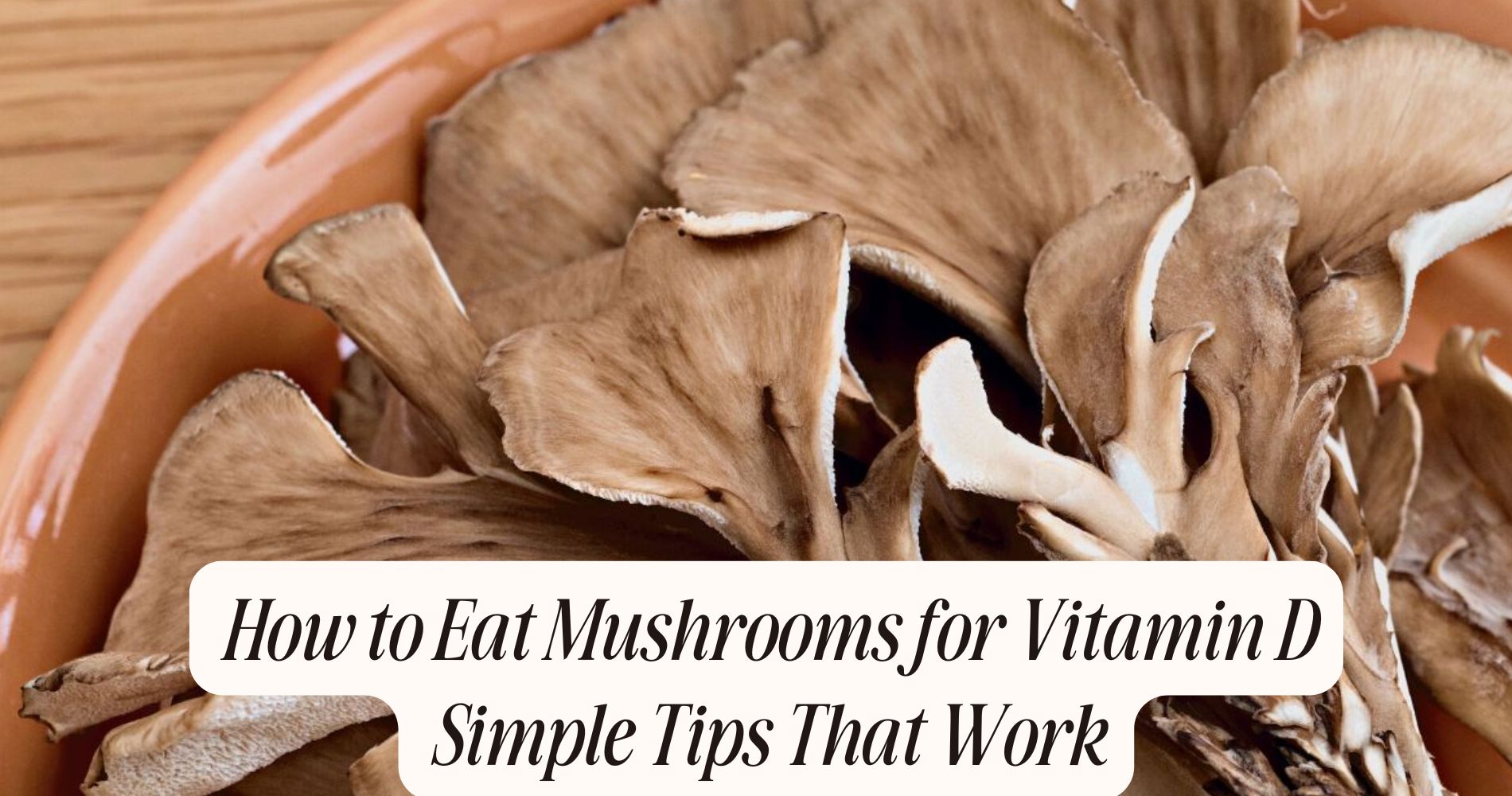
Do Mushrooms Have Gluten? Safe for Gluten-Free Diets?
Do mushrooms have gluten? If you're following a gluten-free diet, you might wonder whether mushrooms are safe to eat. Fortunately, mushrooms are naturally gluten-free and can be a nutritious addition to your meals. However, cross-contamination during preparation can pose risks. You'll want to understand how to safely incorporate mushrooms into your diet and explore the various types available. What should you know about preparing and enjoying these versatile fungi without worry?
Understanding Gluten and Its Sources
When you think about gluten, it’s essential to understand what it is and where it comes from.
Gluten is a protein found in wheat, barley, and rye, providing elasticity to dough and helping it rise. It's key to many baked goods, but it can also be hidden in processed foods.
Common gluten sources include bread, pasta, cereals, and even sauces, making it vital for those with gluten sensitivities to read labels carefully.
If you’re following a gluten-free diet, you’ll want to avoid these sources and opt for alternatives like rice, corn, and quinoa, which are naturally gluten-free.
Understanding gluten’s definition and its sources can help you make informed choices about your diet and health.
Are Mushrooms Naturally Gluten-Free?
Mushrooms are naturally gluten-free, making them a safe choice for anyone avoiding gluten in their diet.
Whether you enjoy button mushrooms, shiitake, or portobello, these mushroom varieties don't contain gluten. Scientific studies and gluten testing have consistently shown that mushrooms lack the proteins that cause gluten sensitivity. This means you can confidently incorporate various types of mushrooms into your meals without worrying about gluten-related issues.

However, it's important to verify that mushrooms are prepared in a gluten-free environment, as cross-contamination can occur during processing or cooking.
Common Types of Mushrooms and Their Gluten Content
Several common types of mushrooms, including button, shiitake, and portobello, are all naturally gluten-free. This makes them a safe choice for anyone on a gluten-free diet.
Shiitake varieties, known for their rich flavor, contain no gluten, so you can enjoy them in various dishes without worry. Similarly, portobello types, famous for their meaty texture, are also gluten-free and versatile in cooking.

Whether you’re grilling, sautéing, or adding them to soups, these mushrooms can enhance your meals without adding gluten. Always check labels for processed mushroom products, but fresh mushrooms themselves are safe options.
Incorporating these gluten-free mushrooms into your diet can provide flavorful and nutritious benefits. Enjoy exploring their culinary potential!
Cross-Contamination: Risks to Consider
Although fresh mushrooms are naturally gluten-free, cross-contamination can pose risks, especially in kitchens where gluten-containing foods are prepared.
Common cross contamination sources include shared cutting boards, utensils, and surfaces that haven’t been properly cleaned. If you’re cooking with gluten-free ingredients, it’s essential to be vigilant about these potential hazards.
To minimize risks, implement prevention strategies such as designating specific utensils and surfaces for gluten-free food preparation. Always wash hands and surfaces thoroughly before handling mushrooms, and consider using separate equipment for gluten-free cooking.
How to Safely Prepare Mushrooms for a Gluten-Free Diet
To safely prepare mushrooms for a gluten-free diet, it's important to follow specific practices that minimize the risk of cross-contamination.
Start with thorough mushroom cleaning; rinse them under cold water and gently scrub to remove any dirt. Avoid using sponges or cloths that may harbor gluten residues.
When it comes to cooking methods, opt for grilling, sautéing, or roasting to enhance flavor without introducing gluten-containing ingredients.

Always use clean utensils and cutting boards that haven’t been in contact with gluten. If you’re using sauces or seasonings, verify they’re gluten-free.
Nutritional Benefits of Mushrooms for Gluten-Free Eaters
Mushrooms offer a wealth of nutritional benefits that can greatly enhance a gluten-free diet. Packed with essential vitamins and minerals, mushrooms are low in calories and high in fiber, promoting digestive health.
Their rich content of B vitamins, such as riboflavin and niacin, supports energy metabolism and overall wellbeing. Additionally, mushrooms contain antioxidants like ergothioneine, which help combat oxidative stress and boost your immune system.
The unique mushroom nutrition also includes beta-glucans, known for their potential to enhance heart health by lowering cholesterol levels. Incorporating a variety of mushrooms into your meals can provide these significant health benefits, making them an excellent choice for anyone following a gluten-free lifestyle.
Enjoy the flavor and nutritional power mushrooms bring to your plate!
Delicious Gluten-Free Mushroom Recipes to Try
Incorporating mushrooms into your meals not only boosts nutritional value but also opens up a world of culinary possibilities, especially for those on a gluten-free diet.
One delightful dish to try is stuffed mushrooms. You can fill them with a mixture of cream cheese, herbs, and gluten-free breadcrumbs for a satisfying appetizer.
Another fantastic option is mushroom risotto. Using arborio rice and sautéed mushrooms, you can create a creamy, hearty dish that's both comforting and gluten-free. Simply add vegetable broth and Parmesan cheese for extra flavor.

These recipes highlight the versatility of mushrooms while ensuring you stay within your gluten-free lifestyle, making your meals both delicious and nutritious. Enjoy exploring these tempting options!
Tips for Choosing Gluten-Free Mushroom Products
When you’re shopping for mushroom products, it’s essential to look beyond just the mushrooms themselves to guarantee they’re gluten-free. Start by checking the product labeling for any gluten-related claims or certifications. Some brands specifically label their products as gluten-free, which can provide peace of mind.
Next, consider the mushroom sourcing. Mushrooms can be harvested in various environments, and those processed in facilities handling gluten-containing foods may risk cross-contamination. Buying from reputable brands known for gluten-free practices can help minimize this risk.
Additionally, if you’re unsure, reach out to manufacturers for clarification on their gluten-free policies. By following these tips, you can confidently enjoy mushroom products without worrying about gluten.
Try a Deliciously Convenient Way to Get Your Mushrooms
Looking for a gluten-free, hassle-free way to enjoy the benefits of mushrooms? Meet SUPER MUSHROOM GUMMIES by Well Gummies. Each tasty chew is packed with the power of 10 functional mushrooms—perfect for supporting focus, immunity, and balanced energy throughout the day. With a fresh wild berry flavor and no jitters or crash, they’re as enjoyable as your favorite candy. Plus, they’re 100% vegan and gluten-free, so they fit seamlessly into any wellness routine.
Frequently Asked Questions
Can People With Celiac Disease Eat Mushrooms?
If you have celiac disease, you can safely eat mushrooms. They offer excellent mushroom nutrition, providing essential vitamins and minerals without gluten. Always verify they’re prepared in a gluten-free environment to maintain celiac safety.
Are All Mushroom Products Gluten-Free, Like Sauces or Powders?
Not all mushroom products are gluten-free. While plain mushrooms are safe, some mushroom sauces and gluten-free powders may contain gluten as additives. Always check labels for potential gluten-containing ingredients to guarantee safety.
Do Mushrooms Contain Any Hidden Gluten Ingredients?
When considering hidden gluten in mushrooms, you should be aware of mushroom processing methods. Cross-contamination can occur in facilities that handle gluten-containing products, so always check labels and choose certified gluten-free options to be safe.
How Do I Identify Gluten-Free Mushroom Brands?
To identify gluten-free mushroom brands, look for certified brands that specifically label their products as gluten-free. Always check packaging labels for any allergen information or potential cross-contamination warnings before purchasing.
Are Wild Mushrooms Gluten-Free as Well?
Wild mushroom varieties are generally gluten-free. However, when foraging, make certain you’re knowledgeable about mushroom identification and safety, as some can be toxic. Always double-check and consult reliable sources before consuming any wild mushrooms.
Conclusion
In summary, mushrooms are naturally gluten-free, making them a safe choice for those with gluten sensitivities. However, it's vital to be mindful of cross-contamination during preparation. By thoroughly cleaning mushrooms and using dedicated gluten-free utensils, you can enjoy their nutritional benefits without worry. Incorporating various mushroom types into your meals can enhance flavor and provide essential nutrients, making them a valuable addition to any gluten-free diet. Enjoy experimenting with gluten-free mushroom recipes!




